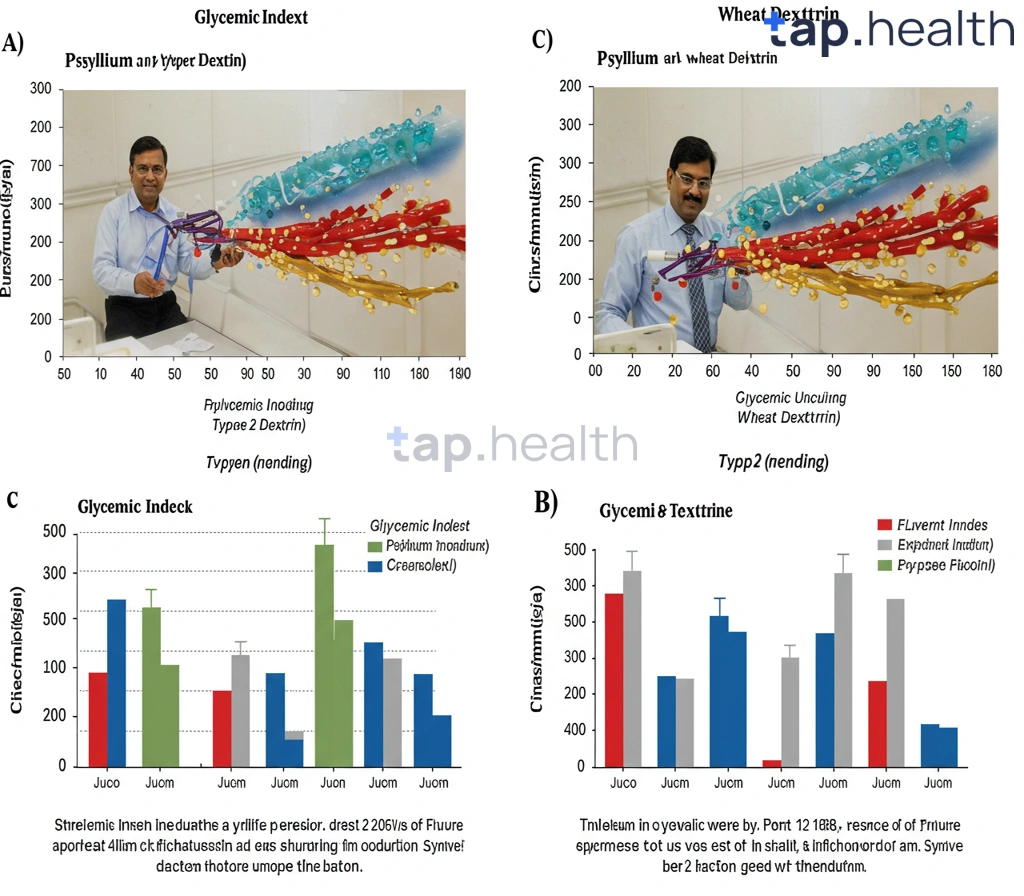Table of Contents
- Asthma, Diabetes & Heart Attack Risk: What You Need To Know
- Understanding the Link Between Asthma, Diabetes, and Heart Disease
- Higher Heart Attack Risk for Patients with Asthma and Diabetes: Prevention Strategies
- Asthma and Diabetes: A Guide to Reducing Cardiovascular Complications
- Can Asthma and Diabetes Increase My Chances of a Heart Attack?
- Frequently Asked Questions
- References
Living with Asthma and Diabetes can present numerous challenges, but did you know it might also significantly increase your risk of a heart attack? This is a crucial concern often overlooked, and understanding this increased vulnerability is vital for proactive health management. In this blog post, we’ll delve into the complex relationship between Asthma and Diabetes: Increased Heart Attack Risk for Patients, exploring the underlying reasons and offering practical strategies to mitigate this risk. Let’s uncover the science behind this connection and empower you to take control of your heart health.
Asthma, Diabetes & Heart Attack Risk: What You Need To Know
Research shows a concerning link between asthma, diabetes, and an increased risk of heart attacks, particularly in populations like those in India and tropical countries. The burden of these interconnected conditions is significant. For example, studies indicate that smokers with diabetes face a doubled mortality rate due to cardiovascular issues. This highlights the critical need for proactive healthcare management in these high-risk groups. The increased risk isn’t simply additive; the combination of asthma, diabetes, and other factors like smoking creates a synergistic effect, significantly increasing the chances of developing cardiovascular complications.
Understanding the Increased Risk
Several factors contribute to this heightened risk. Poorly controlled asthma can lead to chronic inflammation throughout the body, impacting cardiovascular health. Diabetes itself damages blood vessels, increasing the risk of atherosclerosis and heart attacks. In tropical climates, additional environmental factors like air pollution and heat stress may further exacerbate these risks. This necessitates a more vigilant approach to managing these conditions, especially in regions with limited access to advanced healthcare.
Practical Steps for Reducing Risk
Managing asthma and diabetes effectively is crucial in mitigating heart attack risk. This includes strict adherence to prescribed medications, regular monitoring of blood sugar levels and lung function, and lifestyle changes such as a healthy diet, regular exercise, and quitting smoking. Seeking regular check-ups with healthcare professionals is also paramount. Early detection and proactive management are key to preventing serious complications. In India and other tropical countries, awareness campaigns focused on the synergistic effects of these conditions are vital for improving patient outcomes. For more information on managing asthma effectively, see our guide on How to Control and Manage Asthma.
Taking Charge of Your Health
Given the significant mortality risk highlighted by research showing that smokers with diabetes face doubled mortality rates from cardiovascular issues, prioritizing your health is non-negotiable. Consult your doctor to discuss a personalized management plan tailored to your specific needs and circumstances. Don’t underestimate the power of preventative care in reducing your risk of a heart attack. The connection between asthma and cardiovascular health is complex, and you might find our article, Is Asthma a Cardiovascular Disease?, helpful in understanding this relationship further.
Understanding the Link Between Asthma, Diabetes, and Heart Disease
Asthma, diabetes, and heart disease – three conditions prevalent globally, particularly in hot and humid climates like those found in many Indian and tropical countries. While each poses significant health risks independently, the interplay between them dramatically increases the likelihood of cardiovascular events. Research consistently demonstrates a strong correlation, with individuals suffering from both asthma and diabetes facing a significantly elevated risk of heart attacks.
The Complex Interplay
The connection isn’t fully understood, but several factors contribute to this heightened risk. Diabetes, for instance, damages blood vessels over time, leading to atherosclerosis (hardening of the arteries). This process, coupled with the chronic inflammation often associated with asthma, creates a perfect storm for cardiovascular complications. Furthermore, diabetes is linked to a 70% increased risk of sleep apnea and related sleep disorders, which themselves are independent risk factors for heart disease. The lack of quality sleep further exacerbates the problem, impacting cardiovascular health negatively. In tropical climates, where existing respiratory conditions might be aggravated by humidity and air pollution, this risk is likely even higher. For a deeper understanding of how diabetes specifically impacts the respiratory system, see our article on How Does Diabetes Affect the Respiratory System?.
Actionable Steps for Reduced Risk
Managing both asthma and diabetes effectively is crucial to mitigating this increased heart attack risk. This includes meticulous blood sugar control through diet, exercise, and medication, as well as diligent asthma management with prescribed inhalers and avoidance of triggers. Regular check-ups with healthcare providers are essential for early detection and management of any cardiovascular complications. Prioritize lifestyle changes such as a balanced diet low in saturated fat, regular physical activity, and stress reduction techniques. In the humid environments prevalent in many Indian and tropical regions, paying attention to indoor air quality and managing asthma triggers becomes even more crucial. Consult your doctor to develop a personalized plan to address your specific situation and reduce your heart attack risk. It’s also important to understand the connection between diabetes and other health issues. For more information, read our article on Understanding the Link Between Diabetes and Obesity.
Higher Heart Attack Risk for Patients with Asthma and Diabetes: Prevention Strategies
Asthma and diabetes, prevalent conditions particularly in Indian and tropical countries, significantly increase the risk of heart attack. Research indicates that women with diabetes already face a 40% higher risk of heart disease compared to men with diabetes; the addition of asthma further compounds this risk. This heightened vulnerability necessitates proactive prevention strategies tailored to the specific challenges faced in these regions.
Understanding the Increased Risk
The combination of asthma and diabetes creates a perfect storm for cardiovascular complications. Diabetes damages blood vessels, increasing the risk of atherosclerosis (hardening of the arteries). Asthma, through chronic inflammation and oxidative stress, further exacerbates this vascular damage. In tropical climates, factors like air pollution and increased exposure to allergens can worsen both conditions, amplifying the cardiac risk. This highlights the critical need for diligent management of both diseases.
Practical Prevention Strategies
Effective management of both asthma and diabetes is paramount. This includes adhering strictly to prescribed medications, maintaining healthy blood sugar levels through diet and exercise, and controlling asthma symptoms with inhalers and other therapies. Regular monitoring of blood pressure and cholesterol levels is also crucial. Adopting a heart-healthy lifestyle, encompassing a balanced diet low in saturated fats and sodium, regular physical activity, and stress management techniques, is essential. For more information on protecting your heart from the risks of diabetes, see our article on Protect Your Heart from Diabetes: 5 Essential Steps.
Regional Considerations
In India and other tropical countries, access to healthcare and awareness about the interconnectedness of these diseases can be a significant barrier. Seeking regular check-ups with a physician specializing in diabetes and respiratory illnesses is crucial. Furthermore, incorporating readily available local herbs and spices known for their anti-inflammatory and antioxidant properties, after consulting a healthcare professional, can complement conventional treatments. Proactive steps, tailored to the unique challenges of the region, significantly reduce the heart attack risk for individuals with both asthma and diabetes. Understanding the potential cardiac complications of diabetes is vital, and you can learn more about the connection between diabetes and heart rate in our article: Does Diabetes Cause Tachycardia?
Asthma and Diabetes: A Guide to Reducing Cardiovascular Complications
Asthma and diabetes, prevalent conditions globally, significantly increase the risk of heart attack, especially in individuals aged 20-64. This is a crucial concern, given that 61% of people with diabetes fall within this age group, according to data from the International Diabetes Federation. In Indian and tropical countries, where these diseases are increasingly common, understanding the heightened risk and implementing preventive measures is vital. The combination of these conditions puts immense strain on the cardiovascular system.
Understanding the Link Between Asthma, Diabetes, and Heart Disease
Both asthma and diabetes contribute to inflammation throughout the body. In diabetes, high blood sugar damages blood vessels, increasing the risk of atherosclerosis (hardening of the arteries). Asthma, characterized by airway inflammation, can also contribute to systemic inflammation, further exacerbating cardiovascular risk. This heightened inflammation, coupled with other factors like obesity and high blood pressure, common in many tropical regions, creates a perfect storm for heart complications. Managing both conditions effectively is paramount in reducing heart attack risk.
Practical Steps for Reducing Cardiovascular Risk
Individuals with both asthma and diabetes need a comprehensive approach. This includes meticulously managing blood sugar levels through diet, exercise, and medication as prescribed by a physician. Similarly, adhering to prescribed asthma medication and avoiding triggers is crucial. Regular check-ups with your doctor, including monitoring blood pressure and cholesterol levels, are essential. Incorporating a heart-healthy diet rich in fruits, vegetables, and lean proteins, and regular physical activity are equally important lifestyle changes. For those aged 65+, comprising 39% of the diabetic population, this preventative care is even more critical. The challenges of Managing Diabetes as You Age are significant, but proactive management can make a real difference.
Protecting Your Heart in Indian and Tropical Climates
In hot and humid climates, hydration becomes crucial in managing both conditions and reducing strain on the heart. Seek medical advice tailored to your specific regional environment and lifestyle. Remember, proactive management significantly reduces the risk of cardiovascular complications, improving the quality of life for individuals with asthma and diabetes. Consult your doctor to develop a personalized plan to mitigate your risk. Planning ahead is especially important if you’re considering travel; check out our tips for Traveling with Diabetes.
Can Asthma and Diabetes Increase My Chances of a Heart Attack?
Yes, having both asthma and diabetes significantly increases your risk of a heart attack, especially in regions like India and other tropical countries. This heightened risk is due to a complex interplay of factors. Diabetes itself is a major risk factor for cardiovascular disease, damaging blood vessels and increasing the likelihood of atherosclerosis (hardening of the arteries). In India, this is further compounded by the high prevalence of hypertension; over 60% of people with diabetes also have hypertension, a condition that dramatically elevates heart attack risk. To understand how diabetes impacts your circulatory system, read more about how diabetes affects blood flow.
The Asthma-Heart Connection
Asthma, while not directly causing heart attacks, contributes to the overall cardiovascular burden. Poorly controlled asthma leads to chronic inflammation throughout the body, including the blood vessels. This inflammation can accelerate the development of atherosclerosis and increase the risk of blood clots, both major contributors to heart attacks. Furthermore, the stress and strain placed on the cardiovascular system during asthma attacks can further weaken the heart and increase vulnerability.
Protecting Your Heart
In tropical climates, managing both asthma and diabetes effectively is crucial for preventing heart attacks. This involves meticulous control of blood sugar levels through diet, exercise, and medication as prescribed by your doctor. Equally important is diligent asthma management, ensuring you use your inhalers as directed and actively avoid asthma triggers. Regular check-ups with your physician are essential for early detection and management of any cardiovascular complications. Prioritize regular exercise, a balanced diet low in saturated fats and sodium, and stress management techniques. These lifestyle changes can significantly reduce your risk of heart attack and improve your overall health. It’s also important to be aware of how external factors, like how hot weather affects diabetes, can impact your condition.
Frequently Asked Questions
Q1. What is the link between asthma, diabetes, and heart attacks?
People with both asthma and diabetes have a much higher chance of having a heart attack, especially in hot, humid places. This is because both diseases damage blood vessels and create inflammation, increasing the risk of heart problems.
Q2. Why is the risk higher in tropical climates like India?
In tropical areas, things like air pollution and heat can make asthma and diabetes worse, leading to a greater risk of heart attacks.
Q3. How can I reduce my risk of a heart attack if I have both asthma and diabetes?
Good control of both conditions is key. This includes taking your medications as prescribed, regularly checking your blood sugar and lung function, making healthy lifestyle changes (diet, exercise, quitting smoking), and having regular checkups with your doctor.
Q4. What lifestyle changes are most important?
A healthy diet, regular exercise, and quitting smoking are crucial for managing both asthma and diabetes and reducing your heart attack risk.
Q5. What should I do if I have concerns about my risk?
Talk to your doctor. They can assess your individual risk, recommend appropriate management strategies, and help you develop a plan to minimize your chances of having a heart attack.
References
- A Practical Guide to Integrated Type 2 Diabetes Care: https://www.hse.ie/eng/services/list/2/primarycare/east-coast-diabetes-service/management-of-type-2-diabetes/diabetes-and-pregnancy/icgp-guide-to-integrated-type-2.pdf
- What is Diabetes: https://www.medschool.lsuhsc.edu/genetics/docs/DIABETES.pdf




